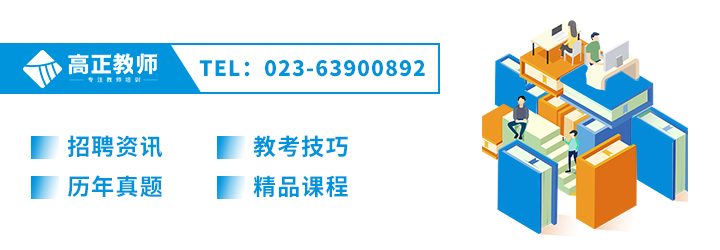
I.语言知识与能力
1.单项选择题(语言知识)
(1)It was very ________ of him to wait for us.
A.considerable B.considering
C.considerate D.considered
(2)________ from the top of the hill, the town looks beautiful.
A.Seeing B.Having seen
C.Seen D.To see
2.单项选择题(阅读理解)
Every year hundreds of thousands of visitors to New York City go to see the United Nations Headquarters in midtown Manhattan. The 18-acre site includes four buildings – the Secretariat, the General Assembly, the Conference building, and the Dag Hammarskjold Library. The United Nations (UN) currently has 192 members, and the flags of those nations line the plaza in front of the General Assembly Hall and Secretariat. The row of flags, displayed in English alphabetical order, from Afghanistan to Zimbabwe, stretches from 48th Street to 42nd Street.
The decision to locate United Nations Headquarters in the United States was made in 1946 by the UN General Assembly, then meeting in London. Several U.S. locations were considered, but a donation of 8.5 million dollars from philanthropist John D. Rockefeller, Jr. secured the purchase of land at the present site. And the City of New York provided a gift of additional land. The UN complex was designed by an international team of prominent architects. American Wallace K. Harrison was named chief architect, and ten other countries each nominated an architect to the Board of Design Consultants. The 11 architects began the project in early 1947. The U.S. government provided an interest-free loan to the United Nations for the cost of construction, which began in 1949.
The Secretariat Building, which houses the UN administrative offices, was completed in 1950, and United Nations Headquarters officially opened in 1951. The Library was dedicated in 1961. Over the years, changes have been made inside the buildings to accommodate the expanded membership of the United Nations. Today the General Assembly Hall, the largest conference room, seats more than 1,800 people.
The UN Headquarters site is international territory owned by the member nations. It has its own security force, fire department, and postal service. The postal service issues stamps that can only be mailed from the Headquarters; tourists often mail postcards bearing these stamps.
Taking a guided tour is the only way for visitors to see the inside of the UN Headquarters. Tours are led by professional guides representing all the member nations and are conducted in many different languages. Visitors taking a tour see exhibits, various council chambers, and the General Assembly Hall. If their timing is good, they might even see a council meeting in session.
The United Nations Headquarters displays many beautiful and meaningful works of art created specially for its halls and chambers. Sculptures and statues donated by member nations adorn the grounds of the complex. One sculpture, the Japanese Peace Bell, was made from the metal of coins collected from 60 different countries. Japan presented the bell to the United Nations in 1954, and it is rung every year on September 21, the International Day of Peace.
The Peace Bell and other sculptures, as well as paintings and murals inside the buildings, create an impression of grandeur and dignity, reflecting the importance of the work being done at the United Nations.
(1)If you want to see the flag of the People’s Republic of China in front of the UN headquarters, you would most probably find it ________.
A.near the 48th street
B.near the 42nd street
C.in the middle between 48th and 42nd streets
D.in the third position from the flag of Afghanistan
(2)The UN was most likely formed ________.
A.before 1946 B.after 1946
C.in 1950 D.in 1947
(3)As a response to the increase in the UN membership, ________ to meet the needs over the years.
A.more buildings have been built
B.internal changes have been made
C.old buildings have been enlarged
D.more new land has been purchased
(4)Which of the following statements about the tour guide is true?
A.A tour guide may show his pride of his home country before visitors.
B.Each member country sends its tour guide to work in the UN Headquarters.
C.Each tour guide must be able to speak the languages of the member countries.
D.A tour guide should not just feel proud of his own home country before visitors.
(5)This article is most likely written for ________.
A.general newspapers
B.magazines on architectural art
C.books on the international affairs
D.encyclopedic information brochure for students
II.语言教学知识与能力
1.单项选择题
Which of the following activities does not belong to mechanical practice?
A.Transformation. B.Sentence making.
C.Substitution. D.Making up a story.
2.简答题(中文作答)
(1)blackboard这个词由哪两个部分组成?该词的重音位置在哪里?请描述相关的语音规律。
(2)阅读教学通常可以分为哪几个阶段?举例说明每个阶段的主要作用。
III.教学设计
教学设计题:根据所提供的信息和语言素材进行教学设计,本题用英文作答。
设计任务:阅读以下信息和语言素材。假设你将利用此语言素材提高学生的口语能力,请根据学生情况设计针对此素材的教学目标,以及实现该目标的课堂活动。
学生概况:本班为中等城市普通学校初中二年级的学生,班级人数为40人。多数学生已具备初步的英语语言能力。学生能够积极参与课堂活动,合作意识较强。
教学时间:45分钟。
教学设计需包括:
教学目标;
教学步骤及设计意图;
教学活动方式、具体内容及设计意图;
教学时间规划;
学习评价。
语言素材:(Tapescript)
Mary: Can you come to my party, Ed?
Ed: Yes, I can. Thanks! How can I get to your house?
Mary: That’s easy. First you take the No. 52 Bus to Green Park. That’s about half an hour.
Ed: Okay. And when I get to Green Park …?
Mary: … Then you take the subway to Tangs Mall. That takes about ten minutes.
Ed: Okay. First the bus and then the subway to Tangs Mall.
Mary: Yeah, then you walk up North Street to No. 15. It’s about five minutes’ walk.
Ed: Okay, thanks. That sounds easy.
IV.教学实施与评价
教学情景分析题:根据题目要求进行教学分析,本题用中文作答。
以下片段选自某课堂实录(片段中T指教师,S指学生)。请分析该教学片段并回答下列问题:
(1)学生在对话中的语言错误是什么?
(2)教师采用什么方式来纠正学生的错误?效果如何?
(3)教师还可以采用哪些方式纠错?请举例说明。
教学片段:
T: What did your mum do yesterday, Wang Lin?
S: My mum buyed the dress for me.
T: Oh, that is nice, your mum bought it for you, did she?
S: Yes.
T: Where did she buy it?
S: She buyed it in town.
T: Oh, she bought it in town for you. Well, it is very nice.


高正教师资格证考试在线交流QQ群:790448005
微信公众号订阅:准老师教师资格证(zhunlaoshi)













